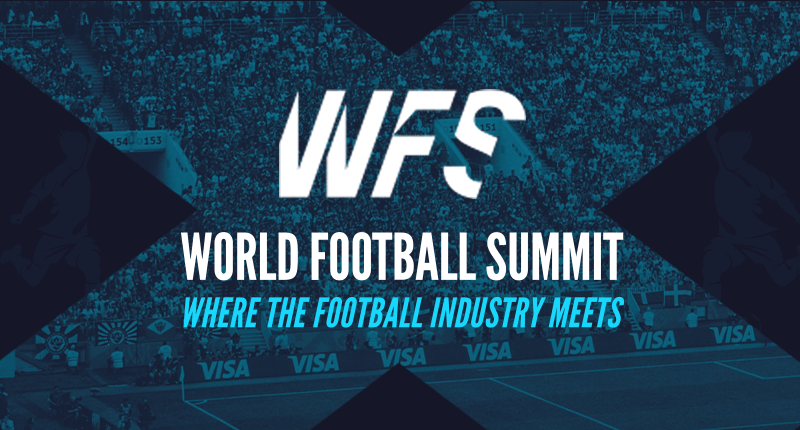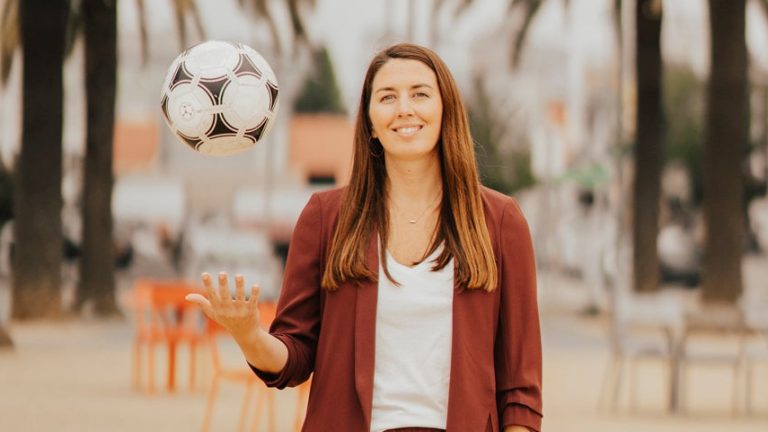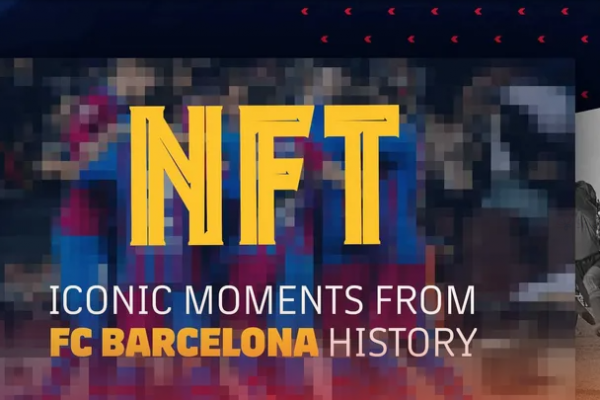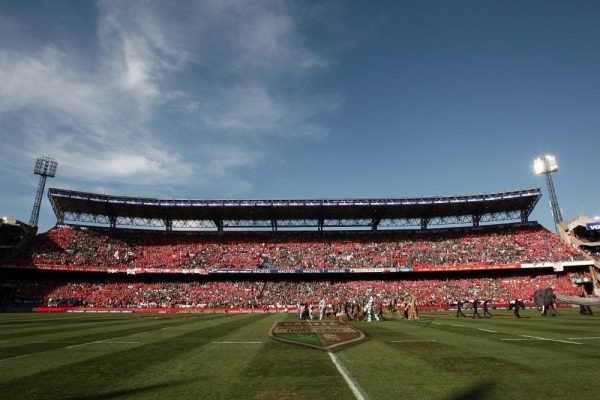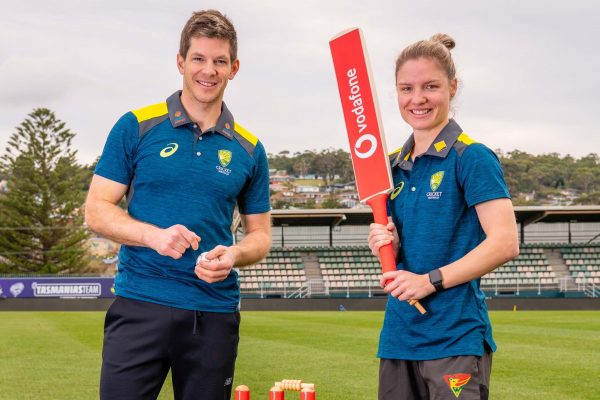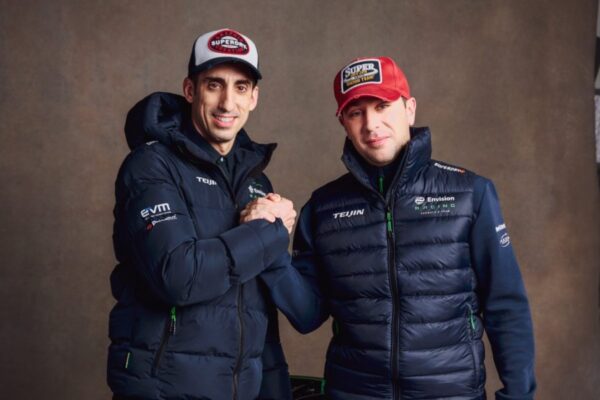Los Angeles’ most talked about club, Angel City FC will debut this year at the National Women’s Soccer League. Backed by Hollywood superstars Natalie Portman, Jennifer Garner and Eva Longoria, it has already signed up some big names. The Playknox spoke with Jessica Smith, Head of Revenue for the club to know about the commercial strategy of the club, combating Covid-19 challenges, ensuring inclusion and diversity among other things. Excerpts:
Tell us about your journey so far?
I am originally from upstate New York, and I interned for a Minor Baseball team when I was a junior in college, and that really came from the motivation of then wanting to be a sports journalist. So it was really about working to get some experience, working for an organization to understand the ins and outs of everything. And when I worked for a minor league team, I fell in love with just how everything fit together and my eyes were opened to how it all worked.
So I ended up after school, continuing my work and my early baseball moving to Southern California working for a team in the Inland Empire which is east of Los Angeles. I was there for a couple of years before accepting a job at the Oakland Athletics, the Major League Baseball club in the San Francisco Bay Area. I was there for eight seasons, and I joined the A’s on the ticketing team. So I was there to sell group tickets and I very quickly moved up to the manager of group sales where I would make sure that we were selling as many tickets as we could to the 81 home games, which is a lot of home games as we could to maximize those seats and create really special experiences for fans.
And then from there, there was an opening that came up on the sponsorship side of the business internally. And candidly, I wasn’t going to apply for it. I was really happy with my managers and the ticketing department, really focused on taking that next step with them. But a lot of times when I would put things together for groups, I would always go over to the sponsorship team and have small business plans, letting them know “Hey, we’re putting together this heritage change. Here’s what brands you might be able to upsell this to or if you’d like to activate alongside your partners like here’s how you could do that with this group of folks.” So I had an innate understanding of how it could all work together to generate revenue for the company.
And when the position opened, a friend of mine at the time she was overseeing marketing at the A’s. She said, “You know you have to apply for that right? And I was like, “Why would I apply for that and going from managing people to not managing people.” And then I went home and thought about it and two things, one, I was naturally very good at it. So I had some understanding that I knew I could do that job. But then to really think through that five year plan for me personally. So what would make me a stronger candidate and would enable me to have more growth, you know, and climb the ladder long term? And by having both sales experience from ticketing and sales experience from sponsorship, not many people are able to do that and both sides of the business so I ultimately did apply and was able to get the job in sponsorship where a very patient mentor of mine taught me everything I needed to know at the time.
I had no idea what an OKR meant, you know and he was super patient with me on all things and I found some quick success and was able to really do a great job for them.
After few years , I ended up signing up for the Ohio University, Master’s in sports administration program. So I took that on to not only increase my knowledge base of all things in the sports industry, not just professional sports and not just baseball at the time , there was collegiate and non- profit work and coaches etc within the cohort. But I really took that opportunity to start testing my leadership skills, to hone in on who I wanted to be as a leader, how I wanted to do that and to increase my network of people that would enable me to succeed in that front so I had a really incredible learning experience with that program. And directly following it was actually offered a position with the Columbus Blue Jackets in the National Hockey League to oversee both premium seating and sponsorship. So I was able to take the leadership skills you know, and put them to test but then also take the work that I had done both on the sponsorship side of the business and the ticketing side of the business and really do some great work there. I was there for two seasons and following that I was interested to get back to the West Coast, with the weather being nicer.
So moved back to work for Major League Soccer’s San Jose Earthquakes as their vice president of sponsorship. So getting into the soccer space was something that was certainly of interest to me and knowing the growth that it’s having, the trajectory that it has the demographics around younger audiences the speed of the game, the global impact that it entails; it’s just such a different platform than traditional American sports with an American football and hockey and baseball and basketball. So I was thrilled to take that opportunity to be there for just just about five seasons.
And while I was there, I received a LinkedIn message from Julie Uhrman, who was the founder and president of Angel City at the time. This was two and a half years ago. It was just a woman in my direct messages that said, “Hey, I think you know, I’m starting a project in Los Angeles that I’d love your take on here. You know, you’re the woman to talk to and sports sponsorship. “ The time I I looked at her profile, we had no mutual connections and it was all based on technology. And I said I had no idea what I thought I could help this woman with. But when we spoke on the phone she had shared with me, “Hey, working with a few people were thinking about bringing a Woman’s Club to LA” and I immediately told her if you don’t do this in a huge way, If you don’t do this the right way. Don’t do it because it could be detrimental, knowing what the potential was for Los Angeles and for the women’s game that I personally was a fan of doing so. Thankfully Julie and I continued chatting that she was building Angel City and then in 2020 in the midst of the pandemic, she actually asked me to come on and oversee partnerships with them full time as they built the club.
And I was thrilled to do so you know, what they had done already, you know, in building the organization as a purpose driven team that was here to create higher expectations on and off the field with an ownership group that built trust and backing, to know that this is going to be successful with everyone from Eva Longoria to Natalie Portman to 12 Former US women’s national team members who built this game to what it is today. That’s a portfolio of people I definitely wanted to work for. So I joined the club about a year and a half ago now.
What has been experienced like and what have been the challenges during these two years years because of COVID?
There were definitely some challenges but I also think we were in probably a better space than most organizations and most sporting entities because we weren’t tied to games quite yet. So as we are building our club, it actually allowed us to do so kind of in a petri dish, or just okay, this is our objective at the time we had a handful of people working on it, myself included and we just knew what we were trying to accomplish. We were able to get some wins and starting to build out our staff you know, I think as we’re getting ready to take on actual games in April this year, we’re going to come into the sports world, which has had to continually adapt to both local mandates, national mandates and international mandates around just keeping our fans and society healthy. So that’s definitely going to be something that we have to focus on.
I will say like being at the quakes during COVID You know, so being in it with when it happened, it was very difficult for the sports industry and all entertainment and events right to adapt to because the world halted very quickly and it impacted many different people in brands were shifting their goods and services and teams were doing their best to figure out make goods that were successful in real time. So that was certainly your journey. But with Angel City, I would say you know, there really have not been those types of hurdles given how we were built virtually. We’re now in an office and have grown up quite a bit and have multiple employees.
I would say that the biggest thing now is making sure that you know we have staff, you know, that we can recruit that feels comfortable coming into work, that’s excited about building what we’re building. Since I think overall in our society we’ve seen a lot of people disperse and do different things.
Moving on what’s the strategy like and what’s it looking like for you sponsorship wise this year?
We have built an incredible sponsorship business. While certainly we’re relying on data and analytics, or more so relying on the purpose of who Angel City is. So when we built Angel City, we said we’re creating higher expectations on and off the field. There’s three ways that we hold ourselves accountable to that. The first pillar is equity. So equity for us is talking about pay equity. It’s why we’re here. We can’t fix pay equity tomorrow, but we can educate the marketplace as to why it exists. And what we can all do, whether we are consumers, teams, leagues, athletes, brands, etc. How do we come together and propel this forward and get more resources into the pool to fix pay equity. But equity to Angel City is also so much more than that.
Equity is making sure that we are supporting the Black community and people of color and those with disabilities in the LGBTQ community. And really everyone to make sure that we’re providing a level playing field we hold that responsibility to.
The second pillar for us is essentials. And when we first began essentials was something we spoke about as the essential of sport, which is incredibly powerful whether you’re providing safe places to play or equipment to use. The data behind that is unbelievable but we were told in a meeting with a local non-profit partner of ours that one of the main reasons young women stopped playing sports is they don’t have access to a sports bra.
And for us, we looked at essentials and thought we need to make sure that we’re also showing up for our community and building whole human beings whether we are thinking about food security, housing, security, mental wellness etc. Those are things that are on our mind. And the third pillar for us is education. So certainly you’ll see us inside schools doing programming where we’re providing nutritional education or financial literacy programming, but education is also about making sure information is accessible. And you’ll see us use our platforms consistently, especially besides our partners to share information, have honest discussions in the marketplace so that it’s easily accessible and can be utilized to people throughout the world.
So those three pillars equity, essentials and education are how we hold ourselves accountable in all things at Angel City. So as we’re building things, how do they fit back into it? So when we were building sponsorship and partnership for us, I’ve been doing this for a long time and you walk into a room and you talk about here’s my property, here’s my reach. Here’s what you’re going to get by partnering with us. Here’s all the great things we’re doing. But then here’s how you can affiliate with us. And we wanted to take it a step further, where people thought of our partnerships as what we were accomplishing together, not necessarily just the affiliation.
So when someone thinks of DoorDash and Angel City, they think that yes, they’re feeding a million people with food. So that’s an important piece of them. When they think of it they think of Birdies and Angel City, they understand that we’re doing a youth program for diverse women in high school that get access both into fashion in sports, through the work that we’re doing. And then of course, our partners receive everything else they can buy everywhere else. They get signage and media and digital content, etc. But the reason we’re partnering is much deeper than and there’s funds going back to that with the 10% piece than just traditional partnership. It’s not only something that fits us because of who we are.
It’s also something that candidly, like consumers are going to begin demanding so like when you’re thinking through business strategies, you know, the COVID consumer is different. And I can speak through this personally, right, as a mom of two girls that spend at home like the products I’m using and where I spend my time and energy and the brands that I align myself with both personally and professionally. I’m thinking through what that feels like differently than I was before. And I’m thinking through who those brands are and how they show up for my community more than I was before. And the Gen Z consumer. It was already doing that right. So our sponsorship business has been incredible because we’ve built something like nobody has before when it comes to purpose this way. And the results have been great not only monetarily to make sure we’re proving a point that women’s sports does justify the funds and the incredible partnerships that exist out there with signing those significant deals.
But we’ve also curated an incredible amount of brands that have never done this before and they’re seeing something in Angel City that they don’t see in traditional sports, they’re seeing something with us that’s a mix of sport and purpose in pop culture, not just sports. And that’s really what we are on a platform. So it’s really been the joy of my career to be able to build this from the bottom up and then to see you know, it comes to fruition now and we’re only just getting started. There’s a lot that we’re going to accomplish together with those brands.
What have been the interests of the brands? Women’s sports are at an all time high right now. So what has been their outlook towards Angel City?
I think they’re interested in what we’re building and they’re interested in aligning with our values, right? We stand for equity essentials and education. They want consumers to know they do too. And we’re a really, very bright beacon out there for what that means. We’re very vocal about being a leader in that space, and we’re unapologetic. So brands are looking to us to be that leader and they want to align. So that’s the main thing. The second piece is that they’re looking at how we’re structuring our deals, when we’re talking through the community Chalk Talks, like that’s the content, that we’re bringing to people and that’s what’s really allowing people to be a partner of ours.
So how do you narrow down on a brand something which obviously aligns like you said, with your strategy?
We are having honest conversations with brands and then understanding where they are in their life cycles, what budgets are even capable on their end and what levels they can be in and then seeing who we can align with that we feel strongly with. So the same conversation we have, these brands are also asked to tell us about the great work they’re already doing. Birdies for instance, they’re founded by two women and they’ve already been doing mentorship work since the fruition of their company, making sure that they’re paving pathways for women entrepreneurs of tomorrow, they’re already doing that. So how do we do that together is more of the question. Heineken you know, it’s important to them and they do things around the globe for pride.
And certainly that’s going to be a big focal point for us, and it’s an important part of our community. They wanted to build that beside us. And do that where you have Jane Walker, who’s in the Diageo portfolio that exists because historically, whiskies aren’t marketed towards women, and they don’t agree with that. And they made an incredible brand that does marketing around first, but not last when it comes to women trailblazers working with, you know, incredible women throughout the industry, both entertainment, sports, everywhere news, etc. And how are we going to take that in every first that we’re doing an Angel sitting and achieving? How are we making sense ? So it’s more about brain alignment once we have the conversation.
Also just the fact that you all have celebrity investors, how much is the involvement of the owners when it comes to sponsorships on brand associations?
Our investors want to see our club succeed, and they all invested in us because they believe in the mission that we have. They’re going to have our jersey and our merchandise to be attending our games and like the natural affiliation, just with them being involved in what we’re doing is a shared purpose. And when there’s opportunity for alignment, if we’re doing great work out in the community and we know that that’s important to one of our investors, or we’re doing community Chalk Talks in for Youth Soccer, we’re definitely going to be asking our former US women’s national team members to participate because they should be they’re wearing our crest and they’re helping us build the tomorrow of soccer with us.
Inclusion and diversity is something which has been talked about globally. Do you think it’s still a buzz word or are people taking it seriously?
I would hope that no one ever does it to just to do it. That’s not helpful and also disingenuous to the women leaders that are out there today who have earned these spots. I’ve definitely heard that before from counterparts of assuming that certain women get positions because they’re a woman and I 100% do not agree with that. So I think if I’m being honest there’s still a lot of work to go especially in sports and entertainment, and we need to make sure that we’re supporting women at every single level, to not only enter the field of sports and entertainment, but to support them through different points in their personal lives, such as having a family if that’s something that they choose to do, I can speak to that personally. Or and also making sure that we’re providing leadership skills and opportunities for growth. And I think a lot of that starts with every company with also making sure you’re doing a self analysis, looking around. What does hiring look like for you? Does everyone look the same? Like if they do, you should probably start thinking about that? And that’s in a variety of ways.
We need a diverse table to make the best product possible and to be as representative as possible and to make ourselves the most successful as possible. That’s been proven by data. So making sure that as a company and as a leader, we’re constantly asking ourselves those questions and are okay knowing that we need to work on things is really important. So I would urge all leaders men and women, you know, to make sure that they’re looking at that, in asking themselves those honest questions about sitting that table because we also need men leaders to make sure that they’re helping as well. This isn’t just you know, women helping other women. We need everybody to really push towards pay equity.


